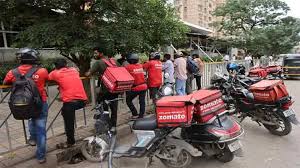For gig workers or freelancers, there are plenty of technological tools you can use to streamline your work while managing your finances, among other tasks. Managing your time, filing your taxes, and many other tasks might be on your plate. The good news is that you can use the necessary tools to make everything efficient and straightforward.
The guide you’re about to review features eight digital tools that every good worker should use in 2024 and beyond.
Let’s show you the list, so you have a good idea of what to snag as soon as you finish reading this.
1. Tax Management Tools
First, we’ll look at tools to help you manage your taxes effectively and sufficiently. For those looking to explore side hustles in the US, know how much you earn to ensure that you file self-employment taxes whenever the time arrives.
Keeper Tax is one of the digital tools you can use to optimize your tax strategy, categorize expenses, and take advantage of any tax-saving tips that may arise. It’s also essential to make sure that you keep hard copies of any earnings and costs that you might have to ensure that you qualify not only for the right deductibles but to ensure accuracy when filing.
2. Time Management
Indeed, time management is more critical than anyone with a gig or freelance job can think. For productivity reasons, you want to find a tool to track your time on different projects and other tasks – for yourself or a small business.
For example, Toggl will be excellent, especially when looking for a tool that provides detailed reports and analytics for improving your productivity and identifying tasks that may be a waste of time. At the same time, it has features that will automatically track your tasks and integrate with other apps, so you can simplify your time management and focus on priorities accordingly.
3. Project Management
If multiple projects are involved, it’s clear that tools like Asana will be excellent for project management. We can read as many positive reviews about the software as possible. It’s fantastic for organizing tasks, setting deadlines, and collaborating with other team members and clients.
Asana is excellent because it has a visual interface and plenty of task-tracking features, so you can meet deadlines accordingly and stay caught up. It is a fantastic tool for a gig worker managing several clients or projects simultaneously.
4. Expense Tracking
We’ve touched on how expense tracking is essential when discussing taxes. One of the things to remember is that keeping track of your expenses will be critical as you are keeping track of the financial aspect of your freelance business. Using tools such as Expensify, you can scan receipts, track mileage for traveling if necessary, and automate any expense reports. This way, you can easily integrate them with your favorite accounting software.
5. Invoicing
If there’s one invoice and tool we highly recommend for freelancers, Freshbooks might be the best option. It has many abilities, including payment tracking, expense management, and creating professional-grade invoices.
Best of all, the user-friendly interface is easy to navigate, and you can produce reports whenever necessary. This will make the financial management aspect of your business much more accessible.
6. Communication
Communication between Freelancers and clients is always a two-way street. Especially when you are collaborating with team members and even multiple clients. There are plenty of tools out there that are great for communication purposes.
But if there is one in particular that you should check out, it’s Slack. For organized channels and direct messaging, Slack will be one of the better communication choices without creating any lengthy email chains that will be lengthy and very hard to navigate.
7. File Storage
Keeping files organized and easily accessible will certainly be the goal for every gig worker and freelancer. Google Drive is the only tool that you can rely on when it comes to file storage. One of the primary reasons is its cloud connection abilities.
You can access the files anytime and anywhere so long as you have the access credentials and a solid internet connection. Adding another layer of productivity, popular streaming apps can also serve as excellent resources for background music and mood setting during work sessions.
8. Task Automation
Finally, we’ll look at task automation tools to ensure your freelancing gigs will be easy to maintain. One tool that stands out when it comes to task automation is Zapier because it can connect various apps and services.
Nonetheless, you’ll automate workflows relatively quickly based on how they are programmed to meet your needs and preferences.
Final Thoughts
These eight digital tools are perfect for the gig worker’s arsenal. Use them to streamline your entire workspace and get things done efficiently and effectively. Familiarize yourself with the tools mentioned above, and we can guarantee that they will be more accessible when it comes to the business end of life.






